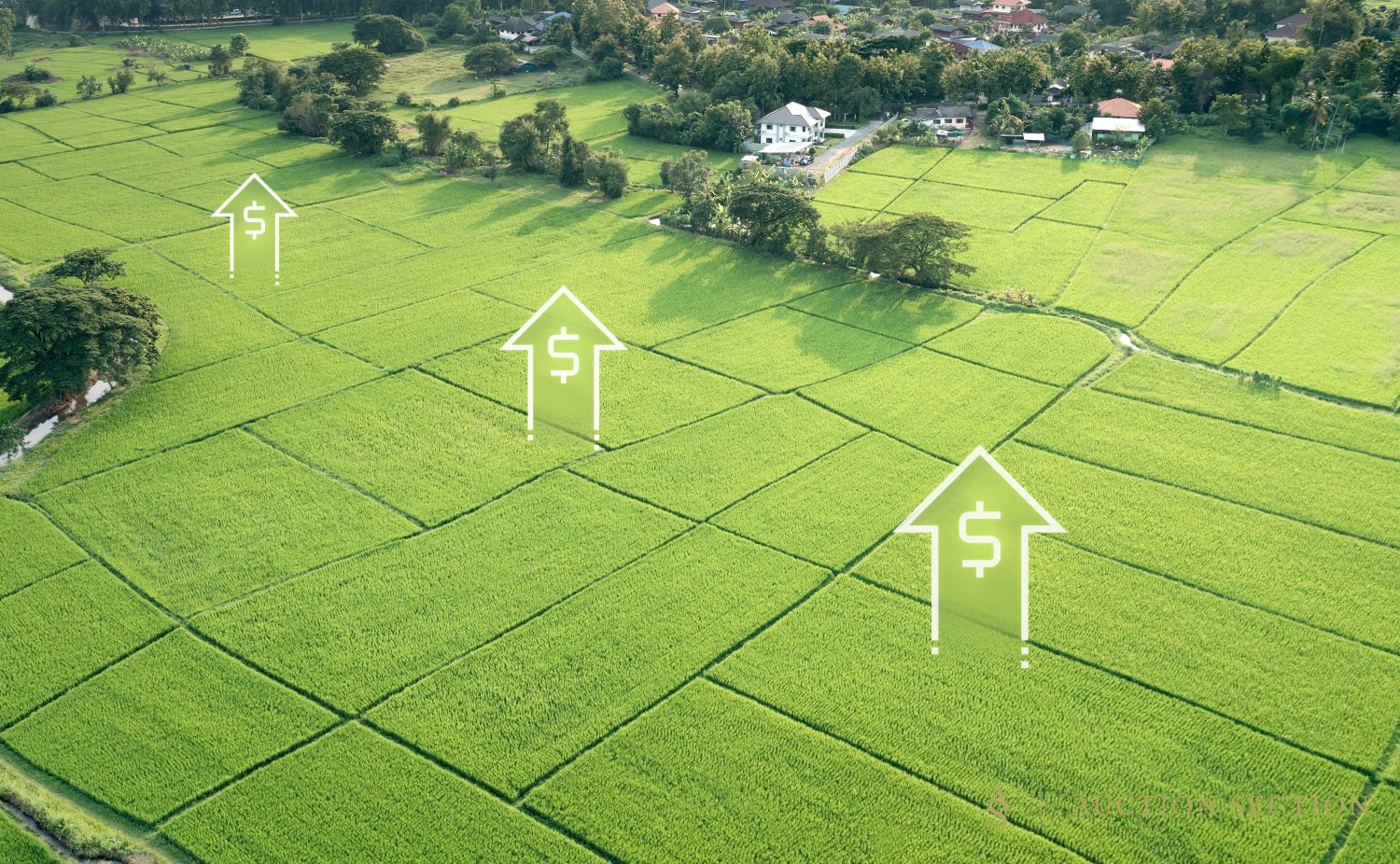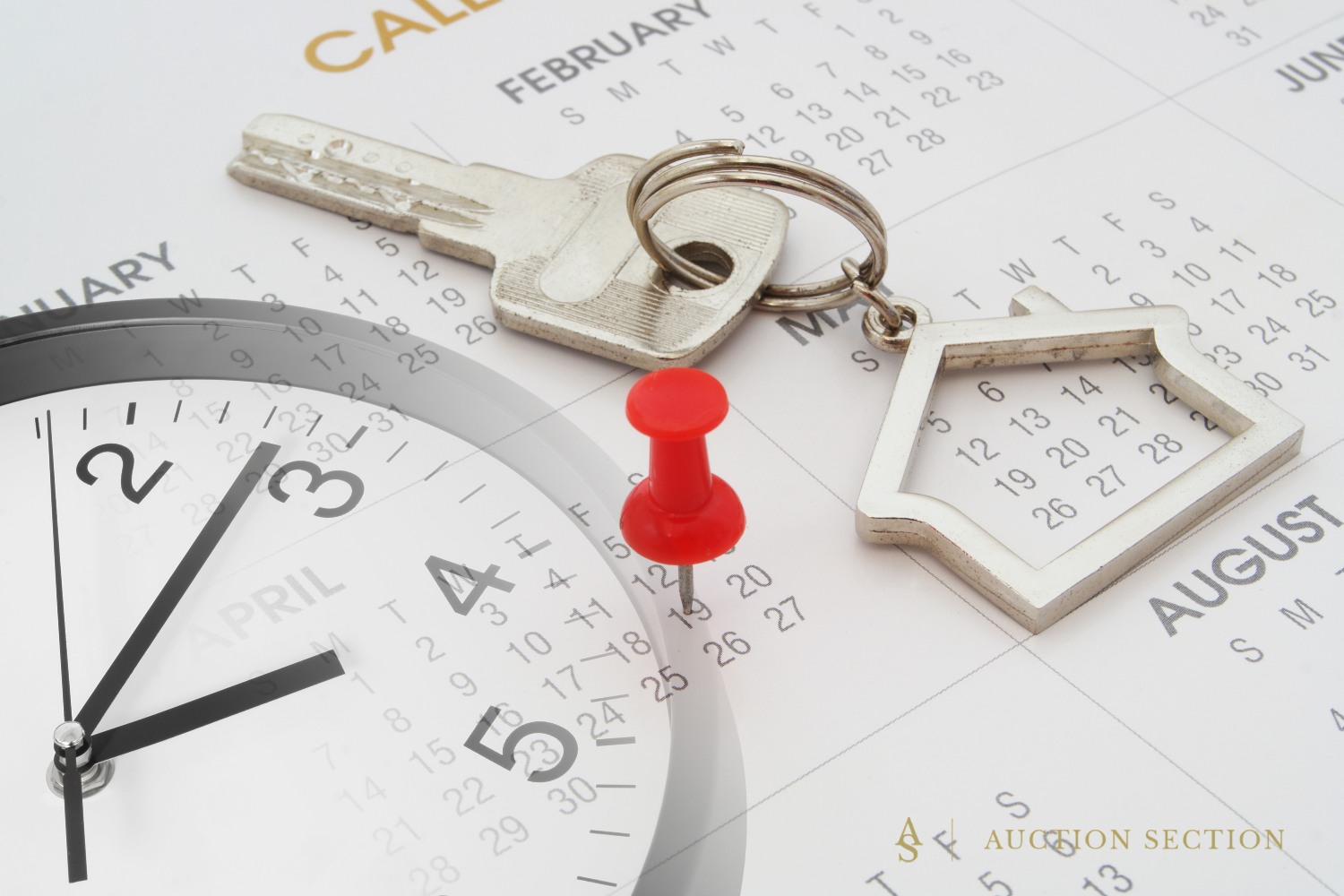
Selling land in Texas might sound simple, but if you price it wrong, you risk missing serious buyers or losing thousands of dollars!
Many landowners either overprice their property or rely on outdated tax records. This leads to months of waiting, lowball offers, and unnecessary stress. Whether you own rural acreage, a commercial parcel, or inherited land, knowing the actual value is the first and most crucial step.
This guide will show you exactly how to accurately value your land before selling, providing simple tips, expert insights, and a focus on why auctions reveal real market value more effectively than traditional methods.
Why Accurate Land Valuation Matters
Before setting any price, it’s essential to understand how accurate valuation affects your outcome:
- Overpricing Scares Away Buyers: Most buyers today are well-informed. If your price is too high compared to similar properties, your listing may sit idle for months.
- Underpricing Leaves Money on the Table: Without knowing the land’s worth, you risk accepting less than it’s truly worth, especially in high-demand Texas markets.
- Auction Pricing Depends on Real Value: Real estate auctions in Texas rely on transparent, market-driven pricing. A wrong starting price can affect bidding momentum.
Key Factors that Affect Land Value in Texas
| Factor | Impact on Value |
|---|---|
| Location | High impact (urban vs. rural, proximity to growth zones) |
| Zoning and Use | Determines allowed uses and target buyers |
| Utility Access | Increases ease of development and overall value |
| Size, Shape, and Terrain | Affects usability and development costs |
| Soil & Environmental Status | Can raise or restrict value depending on quality/risks |
| Comparable Sales | Anchors pricing in real, recent market activity |
What Factors Determine Land Value in Texas?
Land value in Texas depends on far more than just size or location. Each parcel is unique, and to price it correctly, you need to understand what truly affects its market appeal. Here are the most important factors that influence land value across the state:
1. Location and Accessibility
Location, location, location” isn’t just a real estate cliché; it’s a core principle in land valuation.
- Land near growing cities like Austin, Houston, or Dallas tends to sell at higher prices due to the demand for development.
- Proximity to highways, major roads, or transportation routes increases accessibility and buyer interest.
- Even in rural areas, proximity to a small town or industrial zone can significantly boost property value.
Example: A 10-acre plot an hour from Dallas with highway frontage may sell for double the price of a similar parcel that’s hard to reach via dirt roads.
2. Zoning and Permitted Use
Zoning defines how the land can legally be used, and this directly impacts who your potential buyers are.
- Residential zoning attracts homebuilders and investors.
- Commercial zoning generates demand from business owners, retailers, and developers.
- Agricultural zoning limits development but may attract farmers, ranchers, or recreational buyers.
Buyers pay more for land they can build on or lease immediately, so zoning affects both the value and the timeline for selling.
Tip: Check with your local county or city zoning office to verify current zoning and allowable uses.
3. Utilities and Infrastructure Access
Raw land with no utilities is worth less than land with existing or nearby infrastructure.
- Access to water (whether from a municipal source or a well) adds value.
- Electricity and sewer availability make development easier and faster.
- Internet, fibre-optic lines, and cell service are increasingly important, especially for rural land sales.
Land that’s “build-ready” because it’s already connected to services tends to draw better offers.
According to the Texas Real Estate Centre at Texas A&M, utility access is one of the top five factors driving rural land value.
4. Land Size, Shape, and Usable Area
Larger parcels often bring higher price tags, but not always.
- An oddly shaped or heavily sloped property may have limited usable space.
- Flat, rectangular land is easier to develop and subdivide.
- Easements, flood zones, or unbuildable terrain can reduce total usable acres.
In Texas, the price per acre often decreases as the acreage increases unless the land is located in a high-demand area.
Pro Tip: Evaluate how much of the land is truly usable, not just the total acreage.
5. Soil Quality and Environmental Factors
This is especially important for agricultural, recreational, or development land.
- High-quality soil enhances the value of farming and ranching.
- Flood-prone areas or wetlands reduce development potential.
- Environmental restrictions or protected habitats can limit land use or require special permits.
Utilise free tools like the USDA’s Soil Survey or FEMA Flood Maps to evaluate soil type and flood risk.
6. Comparable Sales (a.k.a. “Comps”)
The most accurate way to determine current market value is by comparing your land to recent sales of similar properties in your area.
- Look for sales within the past 6-12 months.
- Focus on properties with the same size range, zoning, location, and utility status.
- Exclude outliers (e.g., distressed or court-ordered sales).
This helps you set a competitive price that aligns with buyer expectations and local demand.
Texas is a non-disclosure state, so exact sale prices aren’t always public. However, tools like MLS data, County Appraisal Districts, or auction firms can help estimate fair value.
Pro Tip: Use your local County Appraisal District as a starting point, but don’t rely on it completely; it’s often different from market value.
How to Research Comparable Land Sales (Comps)
Finding accurate comps is key. Here’s how to do it:
- Use County Appraisal District Records: Every Texas county has an online appraisal district site where you can see past sales.
- Browse Real Estate Platforms: Websites like Lands of Texas or Realtor.com list current land sales. Check by zip code or area.
- Ask Local Real Estate Experts: Auction experts or agents specialising in land can provide deeper insights into what buyers are currently paying.
Do You Need a Professional Land Appraisal Before Selling in Texas?
Sometimes, it’s wise to seek expert help in pricing your land.
- When Appraisals Make Sense: If you’re selling high-value property or have legal issues (estate, divorce), an appraisal adds credibility.
- Pros and Cons: Licensed appraisers follow strict guidelines, but they charge fees for their services. In many cases, an auction company like Auction Section can offer a free property valuation based on real market activity.
Alternatives
- Broker Price Opinions (BPOs)
- Auction Evaluations (often free)
- These are often accurate and faster, especially if you’re using an auction sale.
How Real Estate Auctions Help You Find True Market Value
Auctions aren’t just fast; they’re also accurate. Here’s why:
- Buyer Competition Sets the Price: Serious buyers bid in real-time, creating natural market value.
- Transparent and Fair: Everyone sees the same information. There’s no back-and-forth or price guessing.
- Faster Results: Land often sells within 30-45 days via auction, far quicker than traditional listings.
Tools to Estimate Land Value Before Selling
These tools can give you clarity:
- GIS Mapping (County websites)
- Google Earth + Drone Footage
- Tax Records from County Appraisal Districts
- Flood zone and soil maps (USDA Soil Data or FEMA)
Common Land Pricing Mistakes to Avoid
Even experienced landowners fall into these traps:
- Relying Only on Tax Appraisals: Tax values are often outdated or undervalued.
- Ignoring Market Trends: What sold 6 months ago may not reflect today’s prices.
Tips to Increase Your Land’s Value Before Listing
Even basic prep can boost your perceived land value:
- Clear debris or junk from the property
- Trim grass or clear paths to make it walkable.
- Make sure gates or entrances are open for buyers.
- Provide documents like recent surveys, utility info, or access rights
Why Choose AuctionSection for Land Valuation and Sale
AuctionSection offers unmatched land-selling experience across Texas.
- Free Land Valuation: Get a no-obligation, expert assessment of your property’s value.
- Deep Texas Knowledge: They understand local laws, buyer trends, and the differences between rural and commercial pricing.
- End-to-End Selling Help: From marketing to paperwork, they handle it all for you.
- Transparent and Trustworthy Results: You always know what’s happening, with no hidden fees or surprises.
Visit Auction Section to request your free property valuation today.
Frequently Asked Questions
You can start by checking your local County Appraisal District for past sales records. Real estate websites like Lands of Texas, Zillow, or Realtor.com also show listings that help compare prices. For more accurate comps, consult a local real estate auction expert who understands recent market trends.
No, a licensed appraisal isn’t always required. Many sellers use a Broker Price Opinion (BPO) or request a free land valuation from auction companies like AuctionSection. These options save time while still providing a reliable estimate of your land’s value.
Yes. Auctions attract serious buyers and create competition, which helps reveal the actual market value of your land. Properties often sell faster, typically within 30 to 45 days, and at a price driven by current demand, not guesswork.
Tax appraised value is what the county uses to calculate your property taxes. Market value refers to the amount a buyer is willing to pay based on location, features, and demand. The two are often very different, especially in growing or rural areas.
Know Your Land’s True Worth Before You Sell
Selling land isn’t just about listing a property; it’s about positioning it correctly in the market. A professional, research-based valuation protects you from underpricing, delays, or missed opportunities with potential buyers.
Whether you’re selling rural acreage, inherited land, or a commercial parcel in Texas, working with local auction experts gives you a serious edge. From pricing guidance to a complete marketing plan, AuctionSection makes the process transparent, quick, and results-driven.
Ready to sell your Texas land with confidence? Get started with a free property evaluation and custom strategy to sell land in Texas. Close faster. Earn more with the experts who know Texas land best.


